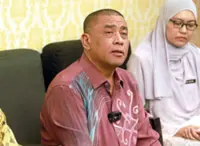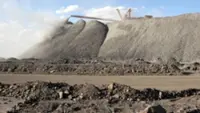KUALA LUMPUR: Authorities may have inadvertently allowed rare earth elements (REE) to be smuggled across borders due to their inability to identify the declared substances, says Natural Resources, Environment, and Climate Change Minister, Nik Nazmi Nik Ahmad.
He explained that his ministry is collaborating with the police and Customs to train them in recognising the various forms of REE.
Nik Nazmi made these remarks during a panel dialogue at a debrief session of the 16th Conference of the Parties to the Convention on Biological Diversity (CBD COP16) with local stakeholders on Wednesday (Dec 11).
He was responding to questions about the arrest of 55 individuals on Tuesday (Dec 10) in Gua Musang for smuggling REE before the minerals were transported for processing in Banting, Selangor.
“REE is a relatively new mineral. Some authorities are still unfamiliar with its appearance.
“We know that REE has been legally transported across borders but has been declared as 'clay' or 'kaolin', (a type of clay mineral with a distinct chemical composition) among other things.
“We are working with the police and Customs to help them understand the different forms of REE and the methods used in its smuggling,” said Nik Nazmi.
Nik Nazmi also expressed hope that the establishment of more legal REE processing plants in the country would reduce smuggling, which results in significant losses to the nation’s resources.
“REE smuggling does occur. Previously, we’ve seen cases in Kedah and Perak involving illegal sites.
“We will continue to combat this issue with the assistance of all relevant authorities. Currently, the only REE processing plant in Malaysia is operated by Lynas in Pahang. However, Lynas does not process locally sourced REE. That said, there are some pilot projects underway in Perak.
“As more processing plants are set up, opportunities for REE smuggling, particularly in Kedah and Perak, will diminish. This is vital to prevent further losses to the country,” he added.





